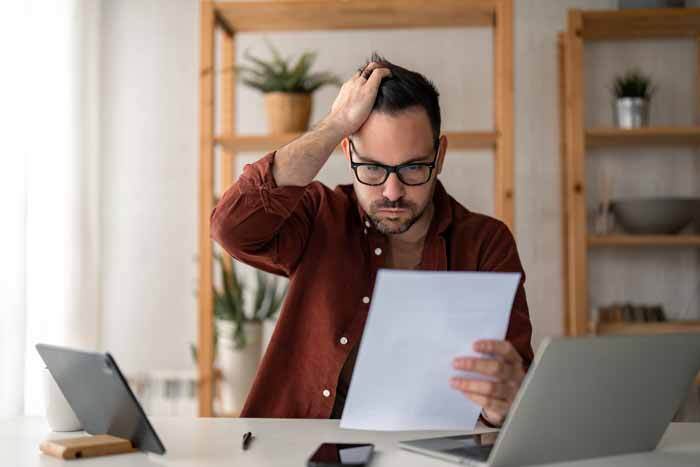Key Takeaways:
- Burnout is common among small business owners, often due to the pressure of wearing too many hats.
- Entrepreneurs are more likely to ignore the signs of burnout until it starts to affect performance.
- Warning signs of small business burnout include
- Fatigue
- Resentment
- Withdrawal
- Trouble sleeping
- Snapping at others
- Setting boundaries is essential. Block off time for focused work, limit meetings, set clear client expectations, and don’t be afraid to say no, even to friends or family.
- Physical self-care supports mental resilience. Prioritize sleep, nutrition, movement, and time outdoors to stay energized and better handle the demands of running a business.
One of the upsides of running your own business is that you’re your own boss.
Of course, you may also be your entire staff, from accountant to human resources manager, janitor, chief mechanic and chiropractic assistant.
This means that to get everything done, you probably need more hours than the 24 available in a day. It’s a classic setup for burnout, which the World Health Organization says is caused by unmanaged workplace stress and marked by exhaustion, negative or cynical feelings about your job, and lower effectiveness on the job.
The condition is widespread, costing the U.S. economy more than $500 billion a year.
The Scope of Burnout in Business Owners
Nearly half of small business owners reported experiencing burnout in the past month, according to a 2022 survey from Capital One, Morning Consult and the NextGen Chamber of Commerce.
Some 62 percent of small business owners believed they were achieving less than they should; 60 percent described feeling run-down and emotionally or physically drained, and 57 percent said they worried constantly about their finances, according to the survey.
While many of the causes of burnout among corporate employees and entrepreneurs are the same, some are inherent to people who start their own businesses and the unpredictability it can bring.
For example, in addition to being extremely passionate about their work, they’re also more socially isolated, have limited safety nets and operate in high uncertainty, Harvard Business Review reports.
Those who believe their current role is the only one for which they’ll ever be ideally suited are more likely to be consumed by it, the publication adds. Those who love what they’re doing but believe it’s one of a variety of options have an easier time taking the breaks they need to stay healthy, both mentally and physically.
“The thing about small business owners is that we’re usually very, very passionate about our mission,” says Janice Litvin, author of the Banish Burnout Toolkit. “We really care about what we do, so we do it all, and because of our passion, we tend to overwork.”
It’s the nature of the role that entrepreneurs don’t clock in or clock out. If they take several hours for a business lunch in the middle of the day (or even if they don’t), they may find themselves working until 10 p.m. or later to keep up, Litvin says.
And they may not even notice until the symptoms of burnout become impossible to ignore, interfering with their ability to do their jobs.
Fortunately, there are several clues that burnout is beginning before that, Litvin says, and learning to recognize and act on them can prevent bigger problems later.
Signs of Business Owner Burnout
Some signs that you are on the road to burnout include:
- Mental or physical exhaustion
- Feelings of ineffectiveness
- Intensifying feelings of resentment
- Disengagement or isolation
- Avoiding everyday situations, especially your least favorite tasks
- Sleep problems (e.g., difficulty going to sleep or sleeping too much)
- Trouble eating, including loss of appetite or digestive problems
- Snapping at co-workers, customers or family members
“Each of these negative signals is a symptom of extreme stress,” Litvin says in the Banish Burnout Toolkit. “Rather than waiting until things are boiling over, practice noticing when you are beginning to feel overwhelmed at work or at home.”
How to Combat Small Business Owner Burnout
Once you know you’re reaching your limits, Litvin says, it’s time to start setting boundaries. Here are a few steps you can take:
- Block off times for meetings and other important tasks to help avoid interruption.
- Cap your number of meetings per day so there’s time to finish other work without overextending yourself.
- Set realistic expectations with clients about deliverables, turnaround times and the hours you’ll be available.
- Set limits at home, too. “Saying no to friends and family members is one of the hardest lessons to learn and yet one of the most important parts of self-care and setting healthy boundaries to manage stress,” Litvin says. “This can be hard for the people in your life to accept, but they will learn to adjust.”
Taking care of yourself physically is also crucial to avoiding burnout, Litvin says. These are some of the basics:
- Eat a well-balanced diet.
- Stay physically active. It may be easier to keep a fitness routine if you find something that’s fun and social, and you set aside time for it regularly, Litvin says.
- Get adequate sleep. Most adults need seven to eight hours a night.
- Spend time outside, which can help you relax and clear your mind in addition to giving you the mood-boosting benefits of vitamin D.
Each aspect of taking care of yourself affects the others, Litvin explains. “When you are sleep-deprived, you don’t have the energy to exercise or think critically at work. When you don’t eat healthfully, you sometimes feel negative about yourself and are not motivated to exercise.”
The bottom line, she says: Doing what you need to do to stay healthy both physically and mentally “will enable you to be more resilient and resourceful when facing stressful situations.”






